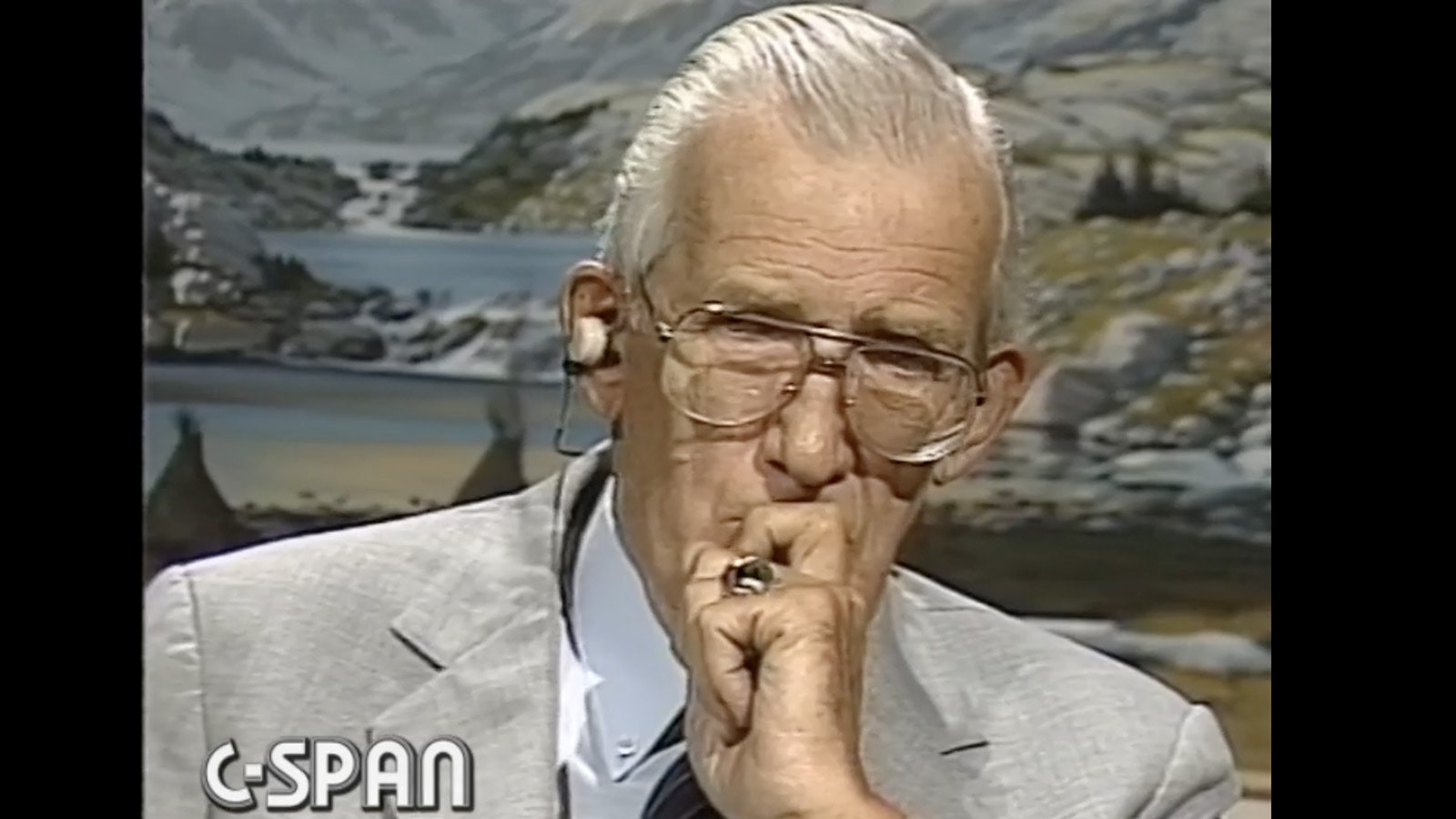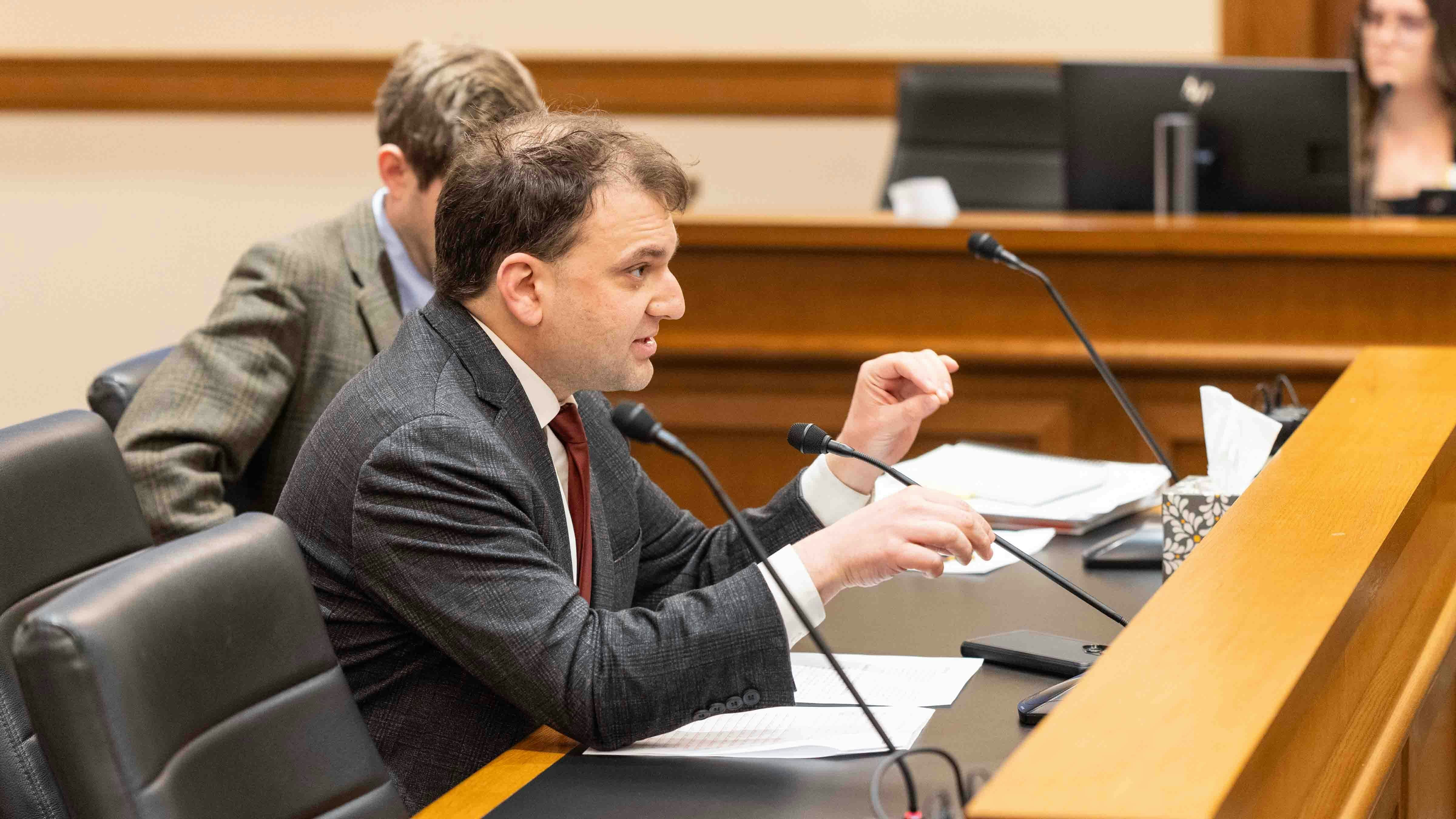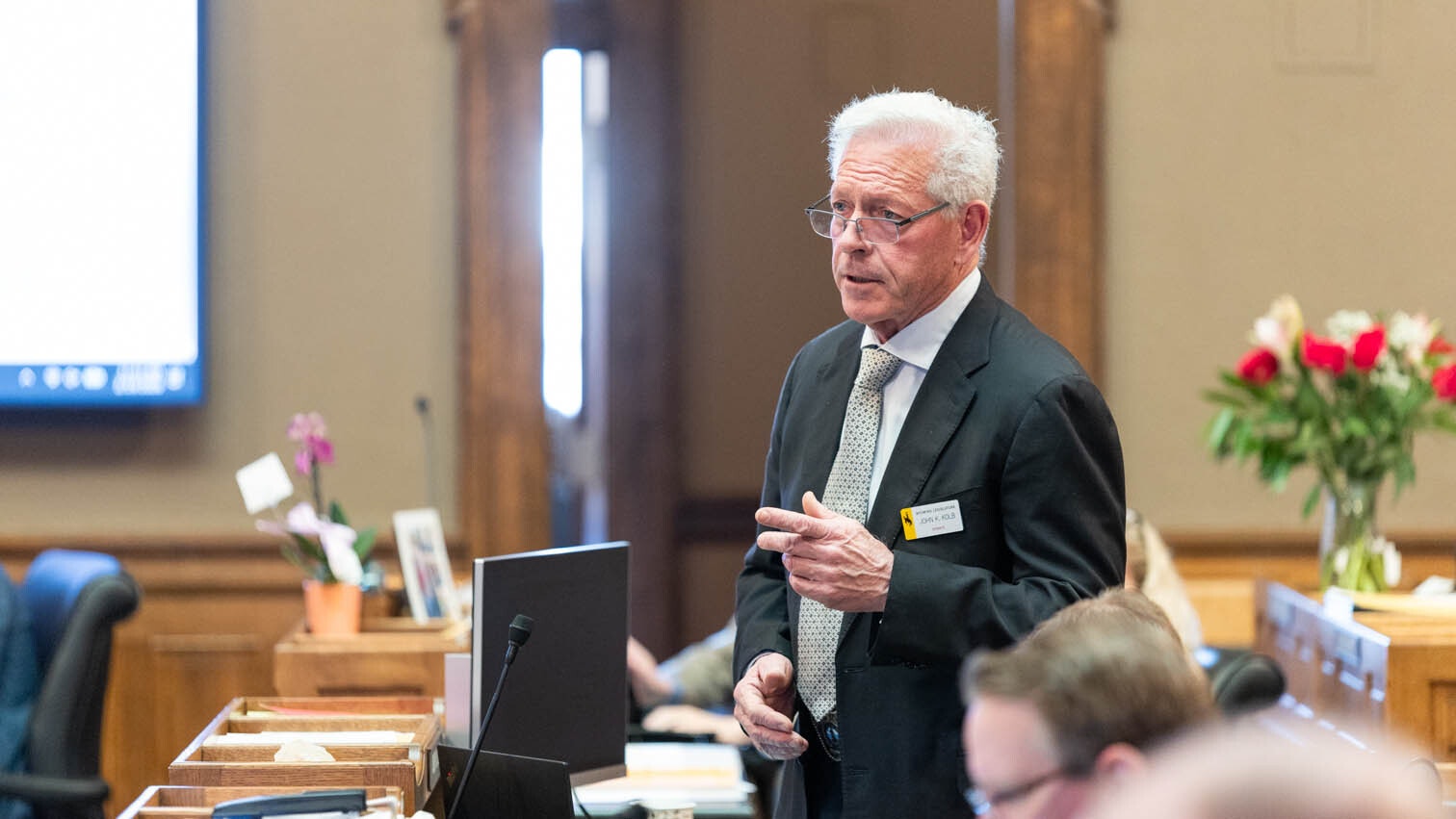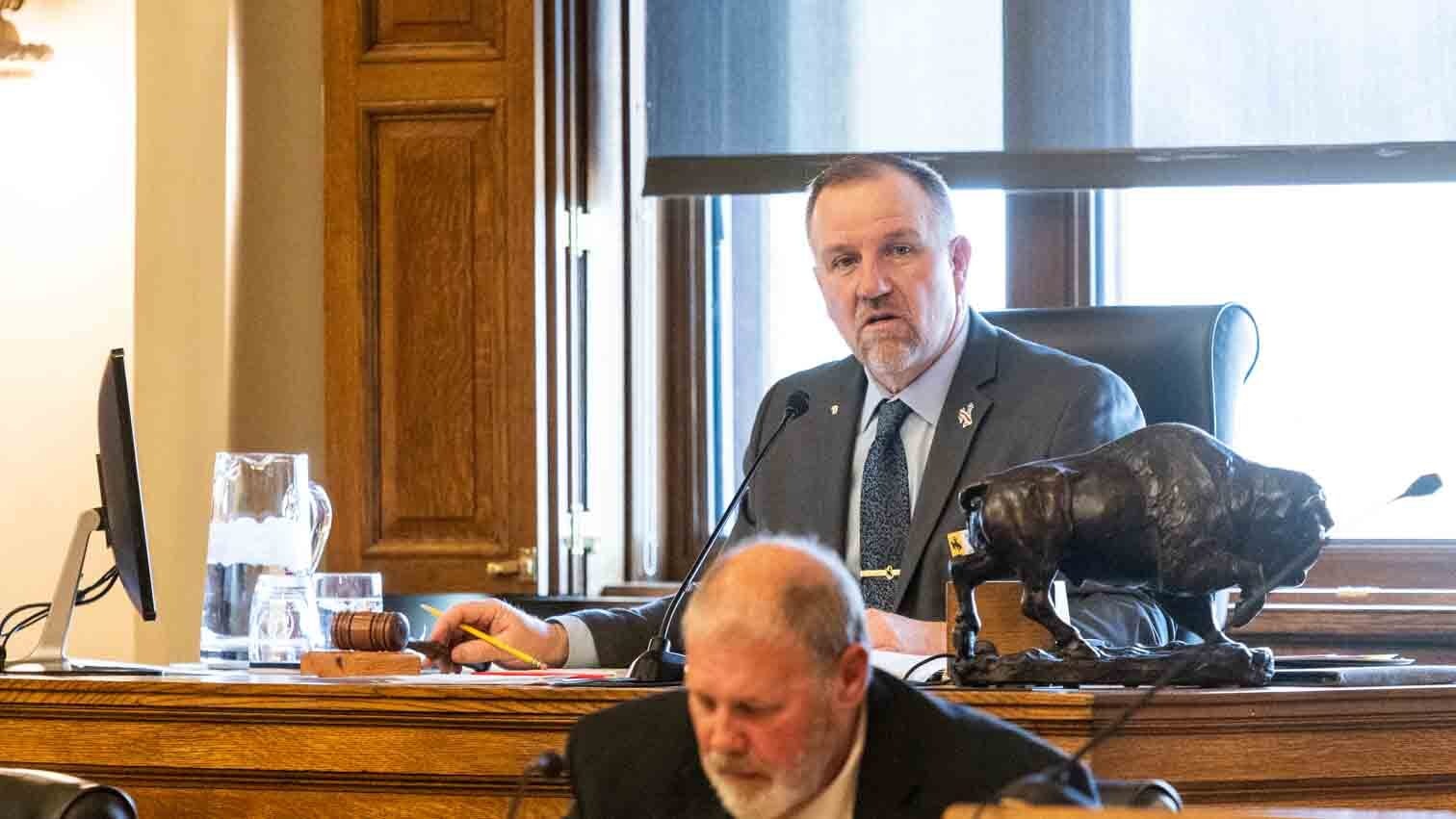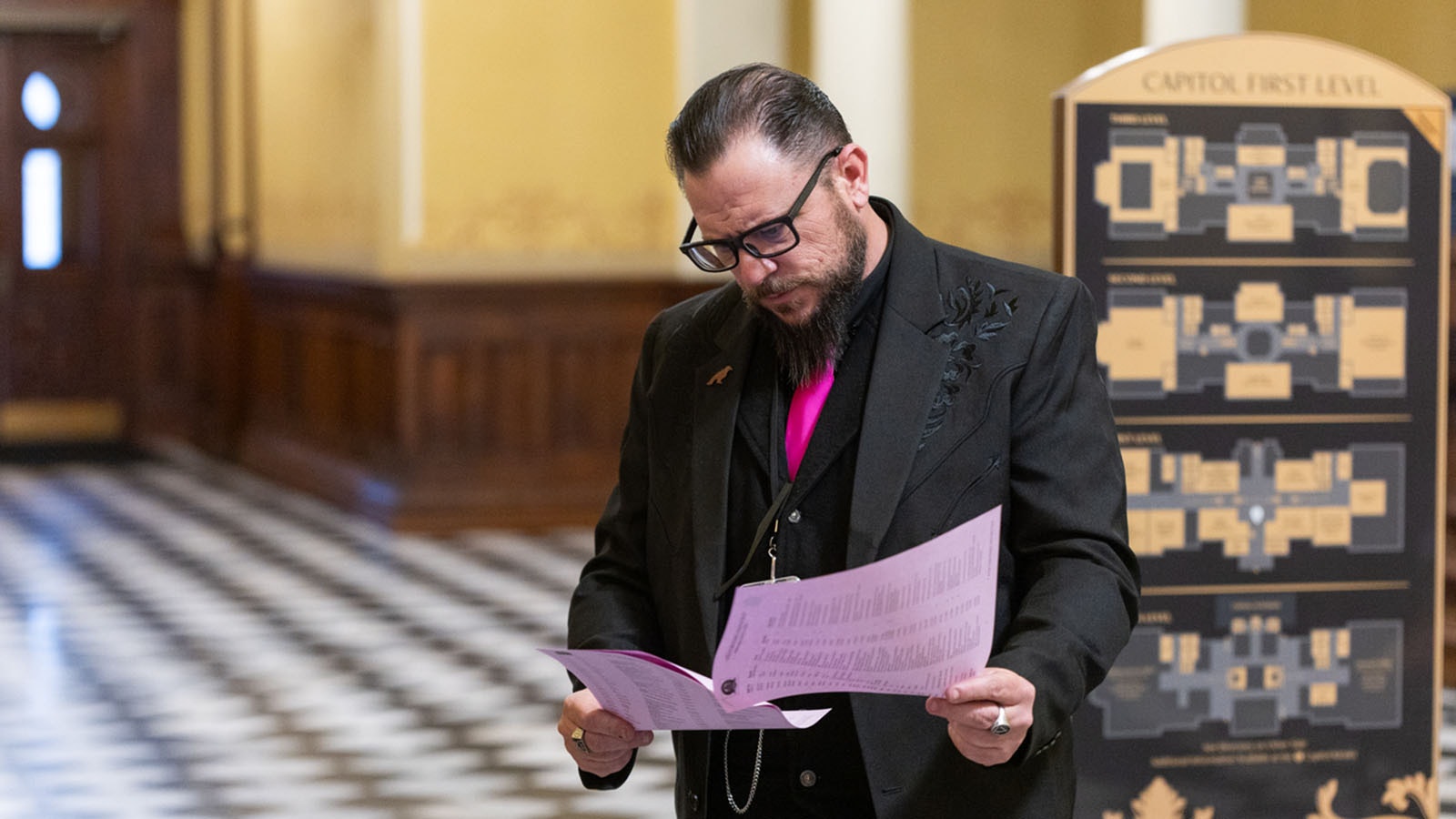A 1985 C-SPAN interview with former Wyoming Gov. Ed Herschler reveals a surprising continuity with the challenges the state faces nearly four decades later.
Wyoming’s sources of revenue, population growth and taxes were top issues then and are still priorities for many Wyoming lawmakers today.
The political climate in Wyoming, however, is dramatically different now than it was 37 years ago.
Former Gov. Dave Freudenthal, who worked in Herschler’s cabinet in a variety of roles, told Cowboy State Daily these have been challenges for Wyoming long before Herschler did his interview.
“In Wyoming, there’s always been lots of conversations about diversifying the economy, but the investments in diversifying have been fairly minimal,” he said.
Diemer True, a longtime former Wyoming state legislator and chairman of the Wyoming Republican Party, said he remembers these also were problems in the 1960s under former Gov. Clifford Hansen.
“In Wyoming, the taxpayers get five times more benefits than they pay into,” he said.
Politics And Decorum
Herschler’s comments about the state of politics in Wyoming was the only part of the interview showing a significant departure from the current state of affairs.
A Democrat, Herschler spoke favorably of Wyoming’s all-Republican Washington delegation of then U.S. Sens. Al Simpson and Malcolm Wallop and U.S. Rep. Dick Cheney, which he said he was proud of and usually agreed with on legislation.
“They are very helpful to me,” he said. “They solicit my views on some legislation.”
If that dynamic played out in Wyoming today, it would be hard to imagine such complimentary words being said by a Democratic governor.
Freudenthal said the biggest reason for this departure from the past politically is the way the state’s Washington, D.C., delegation used to carry themselves.
“They worked hard for Wyoming and Wyoming was clearly their first priority,” he said. “Now, the focus is on reelection and following the party line.”
True said when he was Wyoming Senate president from 1991-1993 he had an excellent relationship with Senate Minority Leader Frank Prevedel of Sweetwater County.
“What a difference there was in cooperation,” True said. “I liked him a lot. He was such a gentleman.”
Division And Compromise
Division has always been a cornerstone to politics, but it’s the ability of those representing different factions to come together to find compromise and common good that determines their effectiveness as lawmakers.
Politics has long had a reputation of, on some level, being an ugly business. But public name calling and general incivility has risen to an all-time high, which has been fueled by social media.
For instance, the use of the word “RINO,” an acronym for “Republicans in name only,” has gone mainstream.
A study performed by the Pew Research Center released in March found that the Democratic and Republican parties have moved away from the ideological center and make up more distinct geographical and demographic lines since the 1970s.
Conservative Swell
When it came to the conservative politics of Wyoming, Herschler was spot on in 1985 in predicting the future.
“Democrats are a minority, they still are and I suspect they will be for a while,” he said.
But there was a much larger Democratic representation in Wyoming in 1985.
Herschler spoke on his ability to be elected as a governor despite a conservative majority in the state. He served three consecutive terms as governor from 1975-1987.
“I don’t know what to have to attribute it to, I suppose it’s luck,” Herschler said. “I have a very fine wife that probably gets a lot of votes for me.”
Cold War Era
But Herschler was clearly a Democrat and criticized a few of Reagan’s policies.
He spoke on the topic of Cheyenne hosting the MX Missile intercontinental ballistic missile and being a potential target of foreign aggression should a military conflict arise.
Herschler saw hosting the missile as an issue of national security rather than any significant economic benefit for the state.
At one point, Herschler proposed that Reagan delay the project as a showing of good faith to the Soviet Union that could discourage deployment of its missiles.
Reagan rejected the idea and moved forward with the MX proposal with support from Congress.
No To ‘Pet Projects’
Herschler also criticized Reagan’s budget as unbalanced and said Congress needed to rein in its spending and “pet projects.”
This complaint is frequently levied by Republicans today, but with different solutions provided.
“I can’t believe we can balance the budget without an increase in taxes,” Herschler said.
Energy Challenges
Energy uncertainty and the state’s future sources of revenue are other points of similarity.
In 1985, Herschler’s interview was conducted during a recession and bust cycle. Freudenthal said the recession lasted until around 1994.
Although there was no discussion of alternative energy sources, many of which were still in infancy in 1985, Herschler expressed concern about where Wyoming would find money into the future and referred to fossil fuels as “a non-renewable resource.”
He used this as reasoning for why energy producers should face severance taxes “to meet the socio-economic impact that’s associated with the extraction of those resources.”
A Natural Resource State
True believes Wyoming’s identity is, and always will be, as a natural resource state, and revenues should be managed properly to reflect this.
“It’s our strength, and also our weakness when there’s downturns,” he said.
He credited former Gov. Stan Hathaway for harnessing state mineral royalties with the Permanent Mineral Trust Fund, one of the most reliable sources of revenue for the state, and at times its largest revenue generator.
Uranium ‘Dead’
Herschler also expressed concern about the state’s uranium industry, calling it “dead.” He criticized the U.S. Department of Energy, which he said didn’t do enough to protect Wyoming’s uranium industry.
“There is no demand for uranium,” he said. “And it doesn’t appear there will be for a long period of time.”
Herschler wasn’t entirely spot on with this prediction but Wyoming’s uranium market has diminished significantly since the 1980s.
Struggling Ag Industry
Herschler also said Wyoming’s agriculture industry was in dire straits at the time.
He said the only farm program he believed former President Ronald Reagan and Congress were interested in supporting was “Hee Haw,” a reference to a country western television show popular at the time.
U.S. Sen. Cynthia Lummis, a state legislator in 1985, came on for an interview later in the evening.
Cultural Similarities
Herschler’s description of Wyoming culture was also very similar to today.
He remarked how many people who move to Wyoming don’t like the idea of anyone else following them in, a sentiment still common today.
Herschler found managing population growth to be a delicate balancing act between incentivizing economic development while not straining state resources.
Growth And Jobs
At one point in the early 1980s, Wyoming’s unemployment hit 11%, Herschler said. By 1985, the number had improved to 6%. Today, Wyoming’s unemployment sits at 3.6%.
“I think that we have to create a tax base, we have to create employment,” he said. “At the same time, we try to protect our environment. It’s a fine line we have to walk.”
Freudenthal said the state’s population boomed in the 1970s, with as much growth during the decade as the previous four decades combined.
Herschler offered a cautionary tale to one Indiana resident who called into the interview and inquired about jobs in the state, telling her she should find employment before moving to Wyoming.
Freudenthal and True said Wyoming faces difficult structural challenges because of its small workforce population and lack of major infrastructure.
Difficult To Diversify
Freudenthal remembered how the state spent nearly $1 million chasing a superconductor facility in the late 1980s, only to be beaten out by Illinois for the project.
He also was surprised by the amount of pushback there was in 2002 when Wyoming established its Business Ready Community Grant and Loan Program.
“The problem is, people will talk about making Wyoming economically diverse, but at the end of the day, it’s hard to translate into action,” Freudenthal said.
True finds Wyoming’s structural problems to be its biggest challenge. He said population growth will only have a negative effect on the state’s tax base moving forward, which will lead to more cuts.
“Because we have such a low population, it’s very very hard to generate income off the population,” he said. “There’s no silver bullet. It’s just something that needs to be managed.”
Taxes
Freudenthal said the state’s tax system has been largely ineffective for the past 50 years. He supports raising taxes to provide for the state’s future.
“People in Wyoming are great people, but I don’t think they have an honest commitment to diversifying,” he said. “They want to enjoy their low taxes.
“If one is to judge based on actions versus rhetoric, they are not as pro-growth as they like to pretend,” he said.
Freudenthal mentioned a lack of public outcry when the state bumped up its sales tax from 3% up to 4%.
“It’s never clear whether it’s the political class or average citizen that is really scared of investing in diversification,” Freudenthal said.
Tourism Economy
In 1985, mining played a large role in Wyoming’s economy, as it does today, but tourism was still relevant.
Herschler mentioned how a number of state agencies at the time, like the Office of Tourism and Wyoming Game and Fish, came together to promote the state to tourists.
“I think we’re doing quite a bit in the area of attracting people here,” Herschler said. “We have some very fine brochures.”
Herschler encouraged callers to write to the state of Wyoming for information about the Cowboy State. Today, this type of information could be easily accessed in seconds.
The former governor also took a complaint during the interview from a Wyoming caller about the state’s conservation tax, still a topic of frustration for some outdoorsmen today.
‘The Last Frontier’
Herschler spoke fondly of his home state throughout the interview and in his closing remarks, described the state as “the last frontier.” He would die five years later in 1990.
“We have a lot of independent, rugged individuals in our state,” he said. “We have the beautiful scenery, we have the game and fish. It may be the last frontier in the continental United States, at least.”

